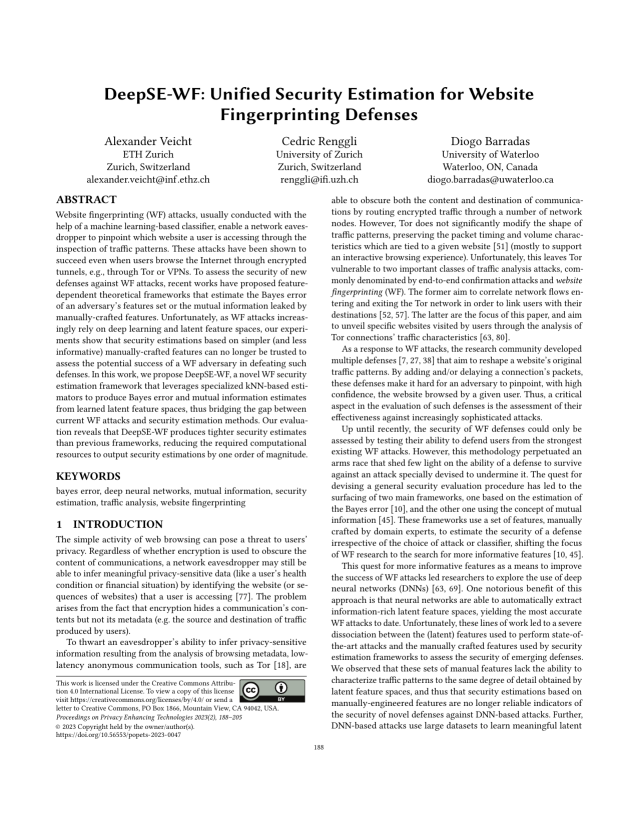DeepSE-WF: Unified Security Estimation for Website Fingerprinting Defenses
Authors: Alexander Veicht (ETH Zurich), Cedric Renggli (University of Zurich), Diogo Barradas (University of Waterloo)
Volume: 2023
Issue: 2
Pages: 188–205
DOI: https://doi.org/10.56553/popets-2023-0047
Abstract: Website fingerprinting (WF) attacks, usually conducted with the help of a machine learning-based classifier, enable a network eavesdropper to pinpoint which website a user is accessing through the inspection of traffic patterns. These attacks have been shown to succeed even when users browse the Internet through encrypted tunnels, e.g., through Tor or VPNs. To assess the security of new defenses against WF attacks, recent works have proposed feature-dependent theoretical frameworks that estimate the Bayes error of an adversary's features set or the mutual information leaked by manually-crafted features. Unfortunately, as WF attacks increasingly rely on deep learning and latent feature spaces, our experiments show that security estimations based on simpler (and less informative) manually-crafted features can no longer be trusted to assess the potential success of a WF adversary in defeating such defenses. In this work, we propose DeepSE-WF, a novel WF security estimation framework that leverages specialized kNN-based estimators to produce Bayes error and mutual information estimates from learned latent feature spaces, thus bridging the gap between current WF attacks and security estimation methods. Our evaluation reveals that DeepSE-WF produces tighter security estimates than previous frameworks, reducing the required computational resources to output security estimations by one order of magnitude.
Keywords: bayes error, deep neural networks, mutual information, security estimation, traffic analysis, website fingerprinting
Copyright in PoPETs articles are held by their authors. This article is published under a Creative Commons Attribution 4.0 license.


